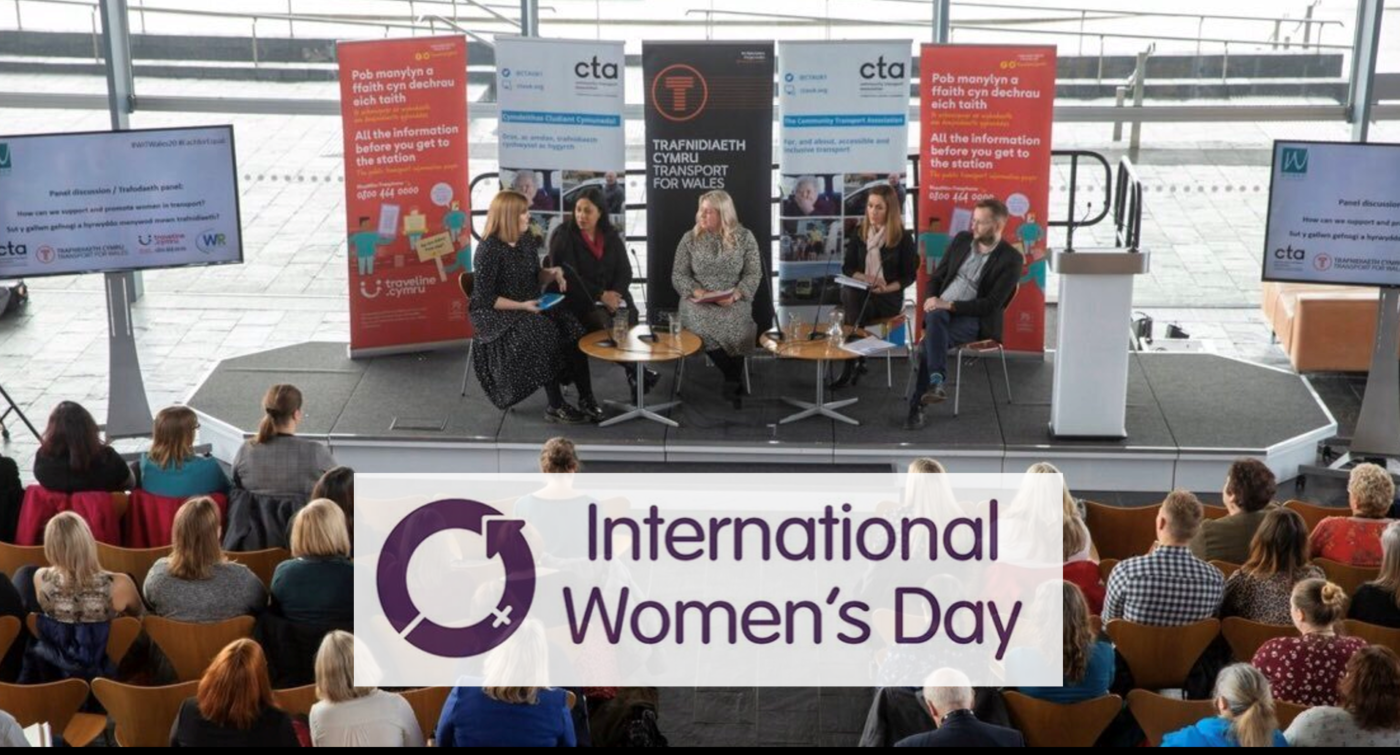-

Celebrating Women in Transport
-
8th March 2021
-
-
by Rachel Burr
Director for Wales
Last year CTA were proud to be a part of an event celebrating International Women’s Day and marking the incredible impact of women working across the transport sector. The event at the Senedd in Cardiff, celebrated the contribution of women across the Welsh transport sector, bringing together colleagues from all parts of the industry for what was an inspiring afternoon. We shared the contribution of community transport in improving gender equality within transport provision and looked at how we can encourage more women to join and succeed in the industry.
Whilst this year we can’t gather together in the same way, the message of the event remains as important and timely as ever. Below, you can find what Christine Boston, my predecessor as CTA’s Director for Wales, talked about at the event, and how increased representation of women in the wider transport sector is key to truly inclusive and accessible services.
“Getting from A to B is a universal human need. Whether we drive, take the train or use the bus network, the speed and efficiency of our transport network affects all of us daily and has a significant impact on our quality of life.
Transportation planning and design are commonly considered gender-neutral, in the sense that they equally benefit men and women. This view, of course, assumes that there are no significant differences between the travel needs and patterns of either gender. The reality is very different.
How women experience mobility is very different from men, deriving from deeply-rooted differences in gender roles and influenced by a wide range of economic and social factors.
For example, while men use transport systems primarily to travel to work and back, women are much more likely to combine domestic and caregiving tasks with trips related to their employment. This phenomenon is called “trip-chaining”, where trips are short, multi-modal and frequent. Trip-chaining is a consequence of juggling conflicting demands; unsurprising when you consider that unpaid care work undertaken by women contributes £10 trillion to annual global GDP. Women, therefore, have less time at their disposal and are more likely to miss out on employment opportunities due to poor transport design.
The economic case for improving our transport systems is clear. For women to work, the infrastructure has to be in place to make it easy for them to do so. One way to do this is to design transport systems that enable women to do their unpaid work and still get to the office on time. Yet the way we plan and invest in transport doesn’t account for both genders equally.
All of the available research highlights a systemic bias towards typically male modes of travel. For example, the UN Commission on the Status of Women found ‘a male bias’ in transport planning and an EU-wide failure to address gender ‘in system configuration’.
Perhaps it’s little wonder that such differences aren’t taken into account when women only account for 20% of the global workforce in the sector. So our challenge as a sector is two-fold; to increase female representation so that we can improve the way we approach and deliver transport solutions.
Women in Community Transport
Community transport is a sector that proudly focuses on the provision of accessible and inclusive transport, filling the gaps in the wider market. By stark contrast to the rest of the transport sector, community transport has a very high representation of women across all roles. Chief Executives, Transport Managers, mechanics and drivers are much more likely to be female, and 60% of leaders in the sector are female.
It’s perhaps no coincidence that the part of the transport sector focused on the provision of inclusive transport is predominantly led by women. It certainly bears out the evidence that suggests having women lead on transport design creates services that provide for a broader range of needs. Our members provide everything from local minibus services to car clubs, all of which are based on the very real needs of the communities they serve.
One has to conclude that increasing the representation of women across the transport industry would lead to more accessible services for all. So how do we achieve that? One way is to start by championing the achievements of women across the sector to promote visible role models. That’s why a few days after International Women’s Day 2020 we were proud to be part of an event supporting women in transport. The event at the Senedd in Cardiff , celebrated the contribution of women across the Welsh transport industry, bringing together colleagues from all parts of the industry for what was an inspiring afternoon. We shared the contribution of community transport in improving gender equality within transport provision and looked at how we can encourage more women to join and succeed in the industry.
While it’s important to celebrate the many achievements of women in the industry, the conversation about how we increase female representation across the board needs to continue if we are to provide truly inclusive transport services that work for everybody.”
-
-
- About CTA
- /
- CTA Membership
- /
- CTWeek24
- /
- Policy & Research
- CommunitySolutions: A Manifesto for the Next UK General Election
- Our Campaigning Guide for Community Transport
- Our Policy Work
- Join Our Mapping England Passenger Survey
- Aneurin Bevan Transport to Health
- Climate Action in Scotland
- conneCTing England Programme
- Mapping Scotland Project
- Mapping Wales
- Mapping England
- Tackling Loneliness in England
- Healthy Communities in Scotland
- /
- Advice & Support
- /
- Training
- /
- Events
- /